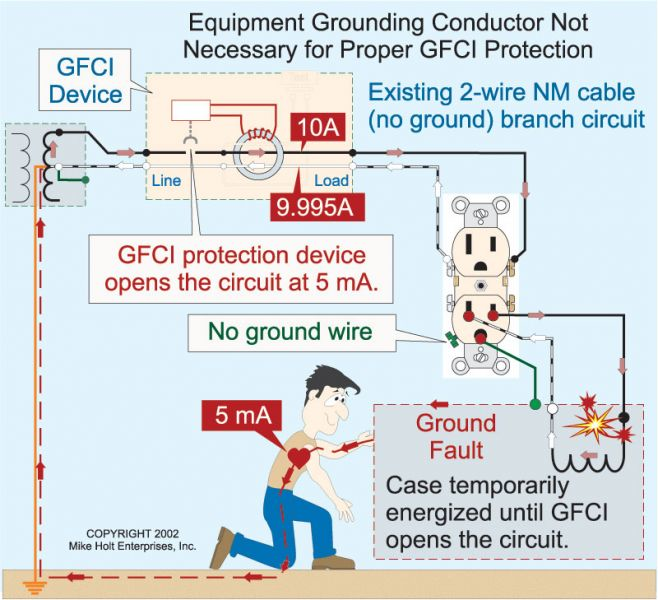So here is my latest display of stupidity:
Last Friday I was up on top of a boat lift inside a metal boathouse. I was running an angle grinder powered by my 48v LiFePO4 through a 3KW inverter.
I know this starts out like a @ghostwriter66 oilfield idiot story and I guess it is!
As I moved the angle grinder the extension cord unplugged itself due to tension (note to self, ALWAYS secure extension cord).
Then I watched the live end of the extension cord drop into the fresh water (Lake Erie) below as I realized I was on top of a steel and aluminum structure which goes into that same water.
I braced myself for a shock, hoping the inverter fuse would blow before it got extremely ugly up there. To my surprise there was no pop at all. I scurried onto the wood ladder and went down for a look being careful not to fall into the water with the live cord in it.
To my surprise the inverter was happily putting out 120v to the extension cord in the water. I shut down the inverter and pulled the cord out of the water and laid it in the sun to dry while I calmed myself and checked my pants.
Lesson 1, never do this again.
Now it's important for me to learn the rest of the story.
Is fresh water that non-conductive that it just wouldn't take any current? Can I test my water conductivity with a multimeter?
From now on all electric in that boathouse will go through a GFCI. Would/should that tripped in this case?? Should the GFCI ground be bonded to the steel superstructure??
I'm hoping for a more elegant understanding before I wire up a GFCI and throw the powered cord back in the water to see if it works or not.
Last Friday I was up on top of a boat lift inside a metal boathouse. I was running an angle grinder powered by my 48v LiFePO4 through a 3KW inverter.
I know this starts out like a @ghostwriter66 oilfield idiot story and I guess it is!
As I moved the angle grinder the extension cord unplugged itself due to tension (note to self, ALWAYS secure extension cord).
Then I watched the live end of the extension cord drop into the fresh water (Lake Erie) below as I realized I was on top of a steel and aluminum structure which goes into that same water.
I braced myself for a shock, hoping the inverter fuse would blow before it got extremely ugly up there. To my surprise there was no pop at all. I scurried onto the wood ladder and went down for a look being careful not to fall into the water with the live cord in it.
To my surprise the inverter was happily putting out 120v to the extension cord in the water. I shut down the inverter and pulled the cord out of the water and laid it in the sun to dry while I calmed myself and checked my pants.
Lesson 1, never do this again.
Now it's important for me to learn the rest of the story.
Is fresh water that non-conductive that it just wouldn't take any current? Can I test my water conductivity with a multimeter?
From now on all electric in that boathouse will go through a GFCI. Would/should that tripped in this case?? Should the GFCI ground be bonded to the steel superstructure??
I'm hoping for a more elegant understanding before I wire up a GFCI and throw the powered cord back in the water to see if it works or not.



